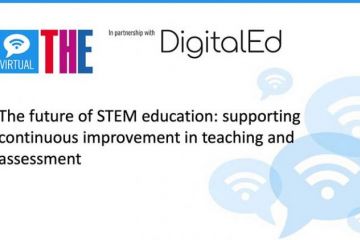RESPONSES to Dearing's recommendations on teaching focused on plans to move some institutions' missions from research. They were interpreted as the start of a new binary divide and the emergence of teaching-only universities.
There is widespread acceptance that university teaching must be pushed to the forefront of any reformed higher education system. But Dearing's proposal to encourage some departments to skip the next research assessment exercise altogether was described as a straightforward bribe by Gareth Williams, professor of educational administration at the Institute of Education. In return for opting out, departments would get a modest per capita sum for scholarship to underpin teaching. "Is this saying that those departments who don't get the per capita sum are too bright and don't need it," he said. "Or is it merely a sop, a way of bribing lots of institutions not to try for the RAE?"
Professor Williams said the proposal would bring back the binary divide. He estimated that as much as 80 per cent of the per capita funding would go to the new universities, barring them from research. He supported the creation of an Institute for Learning and Teaching, but warned against imposing a single orthodoxy of good teaching practice.
Alan Smithers, head of Brunel University's centre for education and employment research, agreed that imposing uniformity and procedure on to university teaching may be counter productive.
But the Open University's David Baume disagreed: "If we come up with a clear account of what it means to be a competent teacher, we can encompass a huge variety of teaching types - all we prevent is incompetence."
The Association of University Teachers' Paul Cottrell also strongly favoured the institute. "This is a really energetic response to university teaching." Patricia Partington, Universities and Colleges Staff Development Agency head, welcomed the emphasis on career-long development for academics.
Ron Barnett, professor of higher education and dean of professional development at the Institute of Education, supported the idea but said it should be accessible to academics in all disciplines, not simply another jargon-ridden bureaucracy.
Register to continue
Why register?
- Registration is free and only takes a moment
- Once registered, you can read 3 articles a month
- Sign up for our newsletter
Subscribe
Or subscribe for unlimited access to:
- Unlimited access to news, views, insights & reviews
- Digital editions
- Digital access to THE’s university and college rankings analysis
Already registered or a current subscriber?







